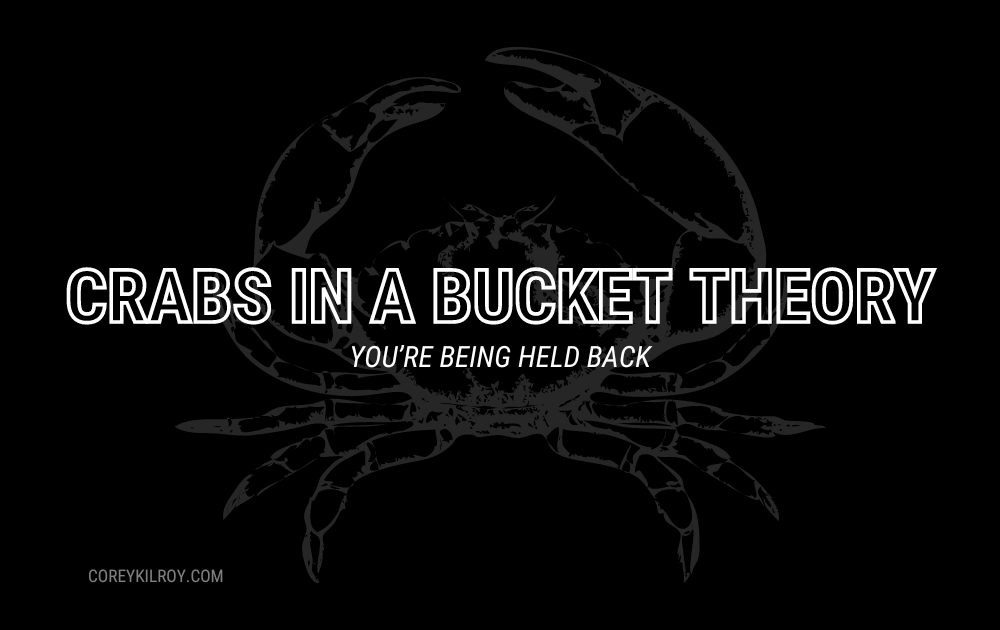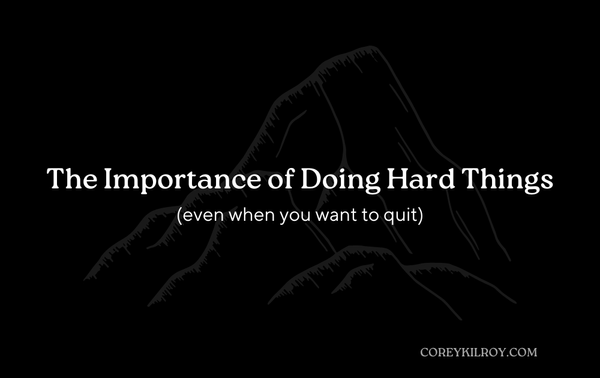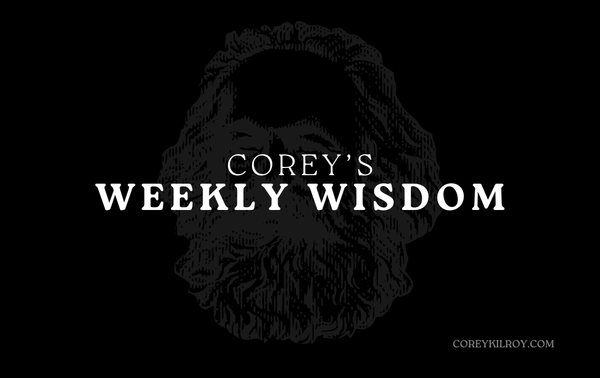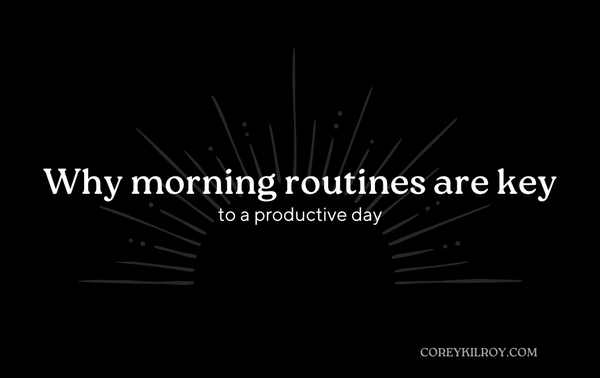Crabs in a Bucket Theory

I recently spent the past week in Cape Cod with loved ones.
Every day, the ocean would retreat and low-tide would stretch back for at least a mile. During this time, especially at dusk, the crabs would come out to play.
Seeing these crabs reminded me of the “Crabs in a Bucket Theory” and I had to share it with you.
What’s the Crabs in a Bucket Theory?
When you put a single crab in a bucket, it has the ability to escape with relative ease.
However, when you put a whole group of crabs in the same bucket, the crabs cannot escape anymore.
Why?
Whenever one crab tries to escape, the others grab him and pull him down.
Because of this, you don’t even need a lid on a bucket full of crabs.
Since each one possesses the ability to escape, the other crabs never let anyone escape. They all just immobilize each other.
The entire group stays in the bucket and meets their end, even though each individual crab could have escaped their fate had they been alone in that very bucket.
Why Should You Care?
First and foremost, because society isn’t changing anytime soon.
Matter of fact, the mentality of the average person in today’s world is becoming worse and worse.
The state of the world has every single person on edge and conditioned to do what’s solely best for themselves.
It’s only natural. It’s survival of the fittest.
Because of this, mental health, self-awareness, and mental fortitude are skills we desperately need to foster and enhance.
We cannot let the other crabs in the bucket hold us down.
Analysis
It’s remarkable how similar humans in their social groups are to crabs in their buckets.
Humans will use social and peer pressure to hold each other down to prevent others from rising above them.
This mentality is a part of human nature, and it’s especially visible among the regular, average people of the world.
When people talk about “haters”, this mentality is what they’re talking about.
“Sabotagers” will try to prevent you from getting ahead because of jealousy, envy, resentment, spite, and even competitiveness.
Here’s a little example…
I always prioritize my health, so I pack a lunch every day for work and I’m the guy who always turns down the birthday cake… I’m sorry.
Because of this, however, I’ll frequently have people trying to peer pressure me into eating the cookies in the break room or “living life and not being so serious” with my diet.
This my friends, is a prime a example of the “average” crabs trying to bring you down.
They have immense interest in getting you to stay where you are because no one likes to see someone below them rise above.
Another example pertains to my good friend and old college roommate.
This roommate never drank and didn’t see the need to change anytime soon.
Naturally, because of the alcoholic culture of college life, he had many, MANY other people trying to convince him to have a beer or drink every. single. weekend.
I’m proud of him for staying strong and never wavering.
You may relate.
And if so, I encourage you to stay strong and stay true to the values you hold on to.
How Can You Escape The Bucket of Crabs?
There are a few things you can do.
1. Firstly, by simply not giving a f*ck…
The “average crabs” use social pressure to bring you down.
Their methods only work if you care enough. So what’s the solution?
Don’t care enough to let them win.
If you are faced with active peers that try to sabotage you, where they really try to pressure you into doing average sh*t, CUT THEM OFF.
You’re not losing a friend; you’re losing a traitor.
You’re net ahead.
That person wasn’t supposed to be in your life anyway.
Additionally, if you’re put in a situation where you might become a social outcast – so be it.
I’d rather have no friends than have friends who hold me back.
The crabs will want to be you just as much as they hate you for being you.
Get it?
In a few years of making the right decisions, you’ll be too far ahead to be caught & (hopefully) surrounded by a better group of people.
2. Create an environment that supports you. Not bring you down.
You need to be in an environment that supports you and encourages you to thrive.
You are the result of the environment you put yourself in.
Having a group of genuine friends and like-minded individuals in your circle is one of the most valuable assets in life.
One that I’m still trying to build.
I talk about all of this in my You Are Your Environment essay.
3. People don’t need to know what you’ve been up to.
Oftentimes, it’s better to operate in private and only let the world see your achievements.
The more you broadcast your actions, the more you are vulnerable to your “haters”.
There’s a reason why lots of rich people practice stealth wealth. It just doesn’t make sense exposing yourself unless you’re going to get something out of it.
People don’t need to know you’ve been trying to start an online business.
People don’t need to know you’re trying to lose 10 pounds.
People don’t need to know you’re buying a house.
People don’t need to know why you’re doing what you’re doing, because it’s none of their business.
Here’s a quote that I really like:
“In a game of chess, you don't speak. You just act.
The only time that you ever speak when playing chess is to say checkmate.
Life is like chess. Don't broadcast your intentions. Act quietly.
Keep achieving. Your achievements are your checkmate.”
💡 NOTE: Another reason to not tell people your plans is that when you talk about what you’re going to be doing – your brain releases a lot of dopamine.
You get the neurological rewards that are so similar to the ones you’d get after you would have achieved what you were setting out to do, that it makes it unlikely that you would actually do it.
This is also why some people love talking about success and never venture out to get any success.
If you must tell people, tell them after you’ve already accomplished what you were trying to do or if you know for certain that they’re on your side.
In the end…
The world is a bucket and we’re all just crabs trying to make it out.
Be resilient. Be consistent. And never give up.
Be well and Keep Pluggin.
-C



